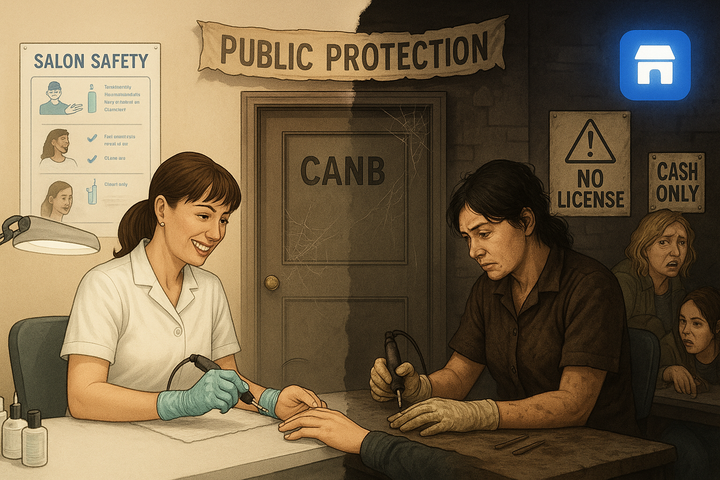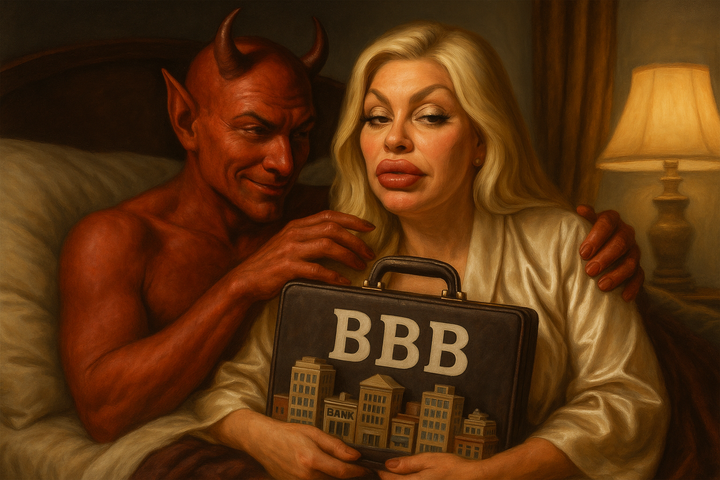Chapter Four: When Trust Becomes a Liability
I used to believe that if you showed up with integrity, people would meet you halfway. That if you honored your word, others would, too. But...

The quiet cost of corporate indifference.
I used to believe that if you showed up with integrity, people would meet you halfway. That if you honored your word, others would, too.
But then you enter a system that was never built to respect you — and realize something gutting:
Trust, here, is not a virtue. It’s a liability.
This is what I learned the hard way with Sedgwick, the third-party administrator used by corporations like Amazon to manage disability claims, time off, and workplace injuries. But let’s not dress this up — Sedgwick doesn’t manage people. It manages denial. Delay. Deflection.
And no, it’s not broken.
Abuse is a feature, not a bug.
If you've been injured, if you’re navigating trauma, if you simply want access to the support you’re entitled to — they see you as a threat. An enemy. A cost to be minimized, not a person to be cared for.
While someone at the top plans a $50 million wedding, the system below them is designed to grind people like me into silence. It’s legal. It’s efficient. It’s soulless.
The Emotional Tax They Don’t Calculate
The most damaging part of this isn’t even the paperwork or the rejections. It’s the emotional dissonance of believing a system will protect you — only to discover it’s engineered to erode you.
You trusted the process. You followed the rules. And when it fails you, you blame yourself for ever expecting better.
That’s the real injury:
Being betrayed, and then blaming yourself for being surprised.
And it’s not just me. Sedgwick has an “F” from the Better Business Bureau. Their reviews read like horror stories. And yet somehow, they continue — fully contracted, fully funded.
Because this is the system working as designed.
If “F” Still Gets Funded, The Rules Are Broken
We throw around words like "accountability" and "wellbeing." But if a company with thousands of complaints and the worst possible customer rating can still process disability claims for one of the world’s richest companies, let’s stop pretending we care.
If corporations are considered legal “persons,” then Sedgwick is a repeat offender.
And we, the public, are expected to behave like it’s fine.
But it’s not fine. It’s structural neglect. And it’s robbing people of time, money, dignity, and mental health.
I’m Not Going Quietly
This isn’t just my story — it’s a systemic pattern.
But I’m telling it anyway.
Because silence is what they count on.
Exhaustion is what they profit from.
And abuse — yes, abuse — is their business model.
I’m done giving this machine the benefit of the doubt.
I’ll be the voice that says no,
That names names,
That remembers who they harmed.
Because if they won’t build systems that care,
We’ll build movements that won’t let them hide.
Missed a chapter? Read more from Systemic Failure series:
This story is bigger than one post. Catch up, revisit, or rage-read
📌 Chapter 1: How Amazon and Sedgwick Gaslit Me After a Fire
📌 Chapter 2: “Caring Counts” — Until You Need It
📌 Chapter 3: When 'Fuck You' Should Be Used – Without Apology
📌 Chapter 4: When Trust Becomes a Liability
📌 Chapter 5: BBB - The Shield Behind the Abuser
Still with me? Good. Let’s burn it all down and build something better.




